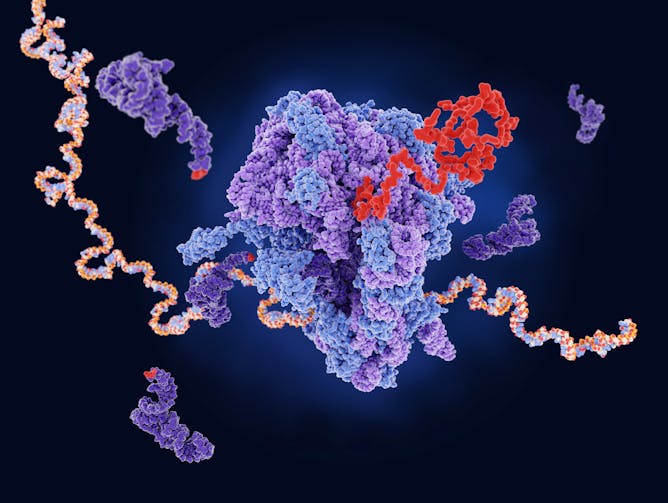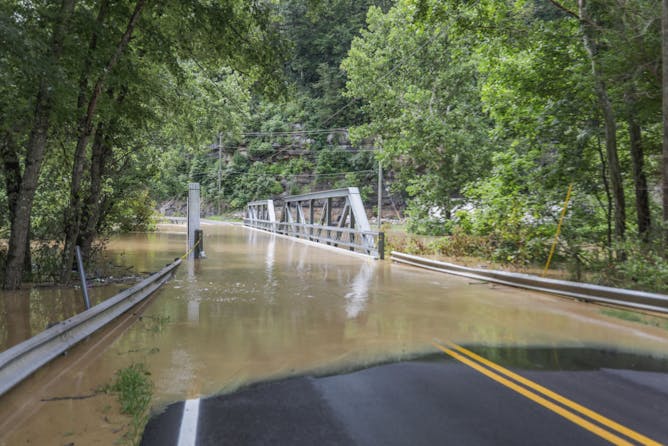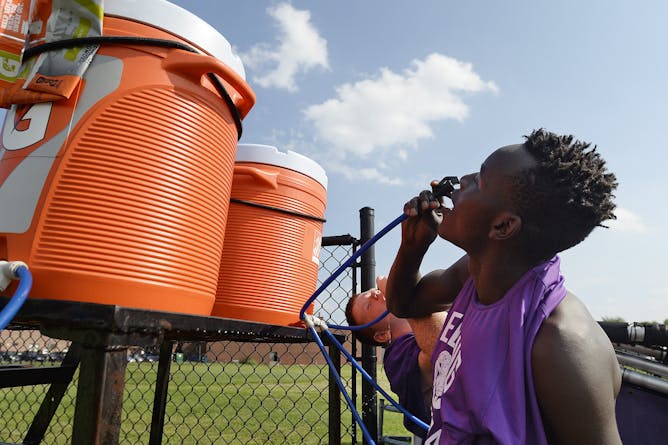|
When the mRNA COVID-19 vaccines, which deliver the infamous spike protein, were still under development, I found myself trying to learn about the role of proteins in medical treatments. (It led to some basic explainer stories such as this one: What is a protein?)
This week I learned a bit more. Two UMass Amherst cell biologists recently published a study demonstrating a way to make muscle cells better at producing desired proteins, which could make new classes of drugs more effective, including gene therapies and biologics. In a story describing their work, they say this basic science could have widespread application in genetic diseases, including many neurodegenerative diseases like Alzheimer’s and Parkinson’s linked to
abnormal protein regulation.
In response to the devastating floods in the Southeast over the past several days, we commissioned an article from Vanderbilt University civil engineer Janey Camp, who explains what flash floods are as well as some of the challenges communities face in improving resilience against extreme precipitation events.
Also on the weather beat, University of South Carolina’s Susan Yeargin, who is an expert on athletic training, writes about the very real concerns about student athletes practicing in very high summer temperatures. She gets into the physiology of heat illness and provides a useful checklist of the many conditions people should watch for.
Also in this week’s science news:
If there’s a subject you’d like our team of science editors to investigate, please reply to this email.
|

Your genetic material instructs your cells to produce the proteins encoded in it.
Juan Gaertner/Science Photo Library via Getty Images
Daniel N. Hebert, UMass Amherst; Lila Gierasch, UMass Amherst
Gene therapies and vaccines are often injected into muscle cells that are inefficient at producing desired proteins. Making them work more like liver cells could lead to better treatment outcomes.
|

A bridge and road submerged by floodwaters from the North Fork of the Kentucky River in Jackson, Kentucky, July 28, 2022.
Leandro Lozada/AFP via Getty Images
Janey Camp, Vanderbilt University
As recent deluges in St. Louis and Kentucky show, flash flooding can happen in urban and rural areas, with deadly results in either setting.
|

Staying hydrated is part of staying safe during summer workouts.
Shawn Patrick Ouellette/Portland Portland Press Herald via Getty Images
Susan Yeargin, University of South Carolina
The first two weeks of preseason training are the toughest as players’ bodies acclimatize to running hard in the heat. An exercise scientist explains the risks.
|
|
|
-
David Drake, University of Wisconsin-Madison; Bret Shaw, University of Wisconsin-Madison; Mary Magnuson, University of Wisconsin-Madison
Urban coyotes prey on rodents and spread plant seeds. It’s OK to observe them from a distance, but then you should chase them off.
-
Mathew Barlow, UMass Lowell
Extreme downpours caught people off guard from Las Vegas to Kentucky in July 2022.
-
Thomas Marlow, New York University; James R. Elliott, Rice University; Scott Frickel, Brown University
Climate change is colliding with old factory sites where soil or water contamination still exist, and the most vulnerable populations are particularly at risk.
-
Sajish Mathew, University of South Carolina
From thalidomide to resveratrol, molecules with the exact same chemical properties can have drastically different effects in the body depending on how they’re arranged in space.
-
Edward D. Melillo, Amherst College
The son of a formerly enslaved mother, Charles Henry Turner was the first to discover that bees and other insects have the ability to modify their behavior based on experience.
-
Melanie Gall, Arizona State University; Christopher Emrich, University of Central Florida; Marie Aquilino, Arizona State University
Telling people they have a flood risk rating of 10 is less powerful than explaining how much they’re likely to pay to deal with flooding over the next five years.
|
|